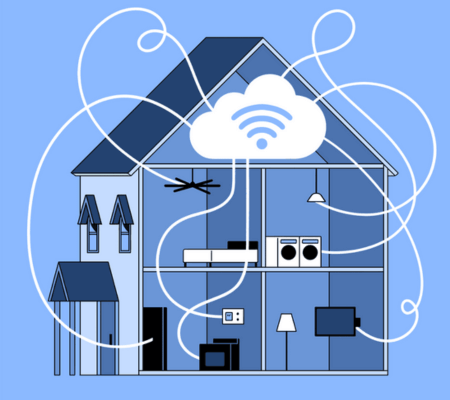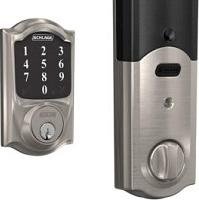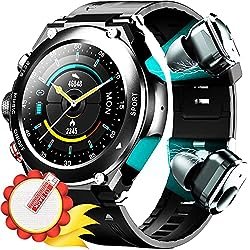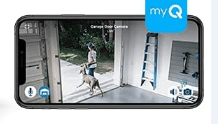“Locks to Keep Alzheimer Patients from Wandering” addresses a crucial concern faced by caregivers and families of individuals living with Alzheimer’s disease. Wandering behavior is common among Alzheimer’s patients and can pose significant safety risks. Therefore, implementing effective locks and security measures is paramount to ensure their well-being and prevent potential accidents or injuries.
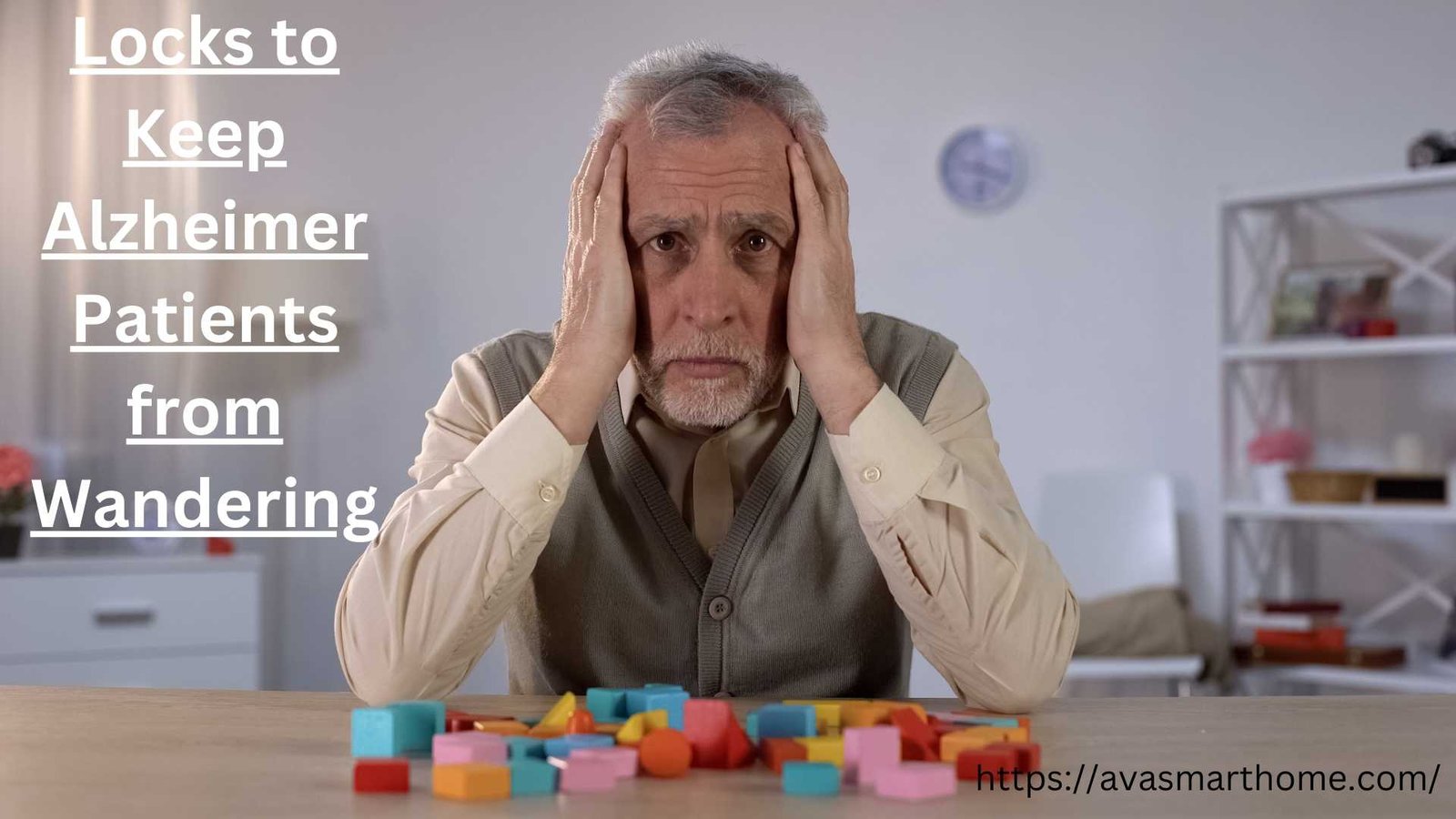
Table of Contents
ToggleUnlocking the Puzzle: Alzheimer’s and Wandering
When it comes to Alzheimer’s disease, understanding the challenges that come with it is crucial for both patients and caregivers. One such challenge is the risk of wandering, which can be not only unsettling but also potentially dangerous.
We’ll also explore various types of locks to consider for enhanced safety, including standard door knob locks, lever locks, deadbolt locks, electronic locks (keyless door locks), smart door locks, and even motion sensors and power tools for additional security.
Related: 5 Best Smart Locks for Sliding Glass Doors
The primary purpose of this article is to offer valuable insights into Alzheimer’s disease, specifically focusing on the issue of wandering. Alzheimer’s, a progressive brain disorder, affects millions of people worldwide. It is characterized by memory loss, cognitive decline, and behavioral changes, all of which can lead to wandering tendencies. Our goal is to help readers understand the risks associated with wandering and provide practical solutions to enhance the safety of both Alzheimer’s patients and their caregivers.
Overview of Alzheimer’s Disease
Alzheimer’s disease is a relentless adversary that slowly erodes an individual’s memory, cognitive abilities, and, eventually, their independence. It’s a journey marked by confusion, frustration, and anxiety, not only for the person with Alzheimer’s but also for their loved ones.
As the disease progresses, individuals with Alzheimer’s may exhibit wandering behavior. This wandering can be triggered by various factors, including disorientation, a search for something familiar, or an attempt to communicate a need. Regardless of the reason, it poses a significant safety concern, as those who wander are at risk of getting lost, injured, or encountering other dangers.
Five Steps to Keep Alzheimer’s Patients Safe
Understanding the Risk of Wandering
Wandering is a common behavior in Alzheimer’s patients, and its consequences can be distressing. To mitigate these risks, caregivers and families must implement effective safety measures, including secure locks on doors and windows. Let’s explore some lock options to consider:
Types of Locks to Consider
1. Standard Door Knob Lock
These locks are the most common and the easiest to install. They are operated with a simple twist of the knob, making them suitable for individuals familiar with traditional locking mechanisms. However, Alzheimer’s patients may still find a way to unlock them if they retain some manual dexterity.
2. Lever Lock
Lever locks feature a horizontal lever handle, which can be easier for people with limited hand strength or coordination to operate. However, they can still be challenging for individuals with advanced Alzheimer’s as they may grasp and manipulate the lever unintentionally.
3. Deadbolt Lock
Deadbolt locks offer enhanced security because they require a separate key or knob to engage and disengage. They are more difficult for Alzheimer’s patients to unlock accidentally. However, caregivers should ensure that the key is kept out of reach.
4. Electronic Locks (Keyless Door Locks)
Electronic locks eliminate the need for physical keys. Instead, they use codes, cards, or even biometric data (such as fingerprints) for access. These locks are an excellent option as they reduce the risk of lost keys and can be reprogrammed easily if needed.
5. Smart Door Lock
Smart door locks can be controlled remotely through a smartphone app, making it convenient for caregivers to monitor and control access. Some models even offer voice activation, enhancing accessibility for Alzheimer’s patients.
6. Motion Sensors/Power Tools for Additional Security
In addition to locks, motion sensors can be placed near doors and windows to alert caregivers when they are opened. Power tools like alarms or cameras can provide an extra layer of security, offering peace of mind to caregivers and family members.
Caring for loved ones with dementia comes with its unique set of challenges, especially when it comes to ensuring their safety around exterior doors.
Common Risks and Solutions for Dementia Patients in Exterior Doors
Exterior Doors vs. Interior Doors: Potential Risks and Solutions
Understanding the difference between exterior and interior doors is paramount when assessing potential hazards and solutions for dementia patients.
Exterior Doors:
- Risk: Exterior doors are the primary entry and exit points of a home, making them a significant risk for wandering. Dementia patients may attempt to leave the house unsupervised, leading to safety concerns.
- Solution: Consider installing specialized locks and security features, such as keyless entry systems, motion sensors, and alarms, to monitor and restrict access without hindering emergency exit routes.
Interior Doors:
- Risk: While interior doors may not pose the same risk of wandering, they can still be problematic. Dementia patients might lock themselves in rooms, leading to confusion and distress.
- Solution: Opt for non-locking or easy-to-open interior door handles, ensuring that patients can navigate their living space without feeling trapped.
Important Factors to Consider When Choosing a Door Lock for Dementia Patients
Selecting the right door lock is crucial for ensuring the safety and well-being of dementia patients. Here are essential factors to consider:
Ease of Use
Choose locks that are simple to operate, minimizing frustration and confusion for the patient. Lever handles or keyless entry systems can be excellent options.
Security
Balance ease of use with security. While it’s important to prevent unwanted exits, it’s equally vital to ensure quick and easy exit during emergencies. Deadbolt locks with a thumb turn on the inside offer both security and easy escape.
Visibility
Consider locks with clear indicators, such as color-coded buttons or labels, to help dementia patients identify whether the door is locked or unlocked.
Remote Monitoring
Explore smart locks that allow caregivers to remotely control and monitor door access, providing an added layer of security.
Anti-Wandering Devices
Incorporate motion sensors and alarms near exterior doors to alert caregivers when the door is opened, especially during nighttime hours.
Tips on How to Choose the Perfect Door Lock for a Dementia Patient
Here are some practical tips to guide you in selecting the ideal door lock for a dementia patient:
-
Consult Professionals: Seek advice from healthcare providers or dementia care specialists to tailor your choice to the patient’s specific needs.
-
Involve the Patient: Whenever possible, involve the patient in the decision-making process to ensure they are comfortable with the chosen lock.
-
Trial and Error: Be prepared to experiment with different lock types if the initial choice doesn’t suit the patient’s abilities and preferences.
-
Regular Check-Ins: Continuously assess the patient’s cognitive impairment level and adjust security measures accordingly as their condition evolves.
Considering Cognitive Impairment Levels of Each Individual Patient
Remember that dementia is a spectrum, and each patient’s cognitive abilities can vary. It’s essential to regularly evaluate the individual’s level of impairment and adapt safety measures accordingly. As dementia progresses, what works initially may no longer be suitable.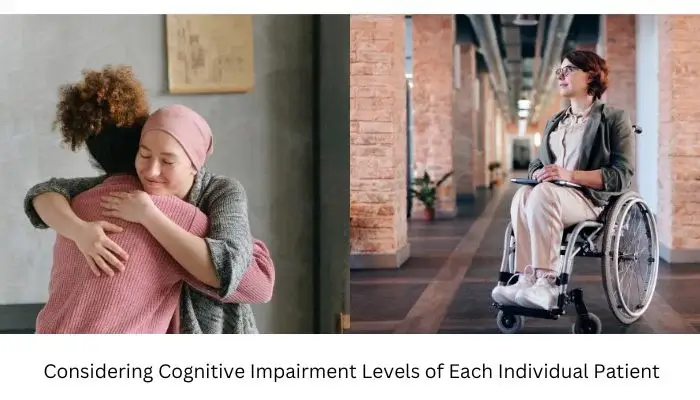
Safeguarding dementia patients around exterior doors is a paramount concern. By understanding the unique risks posed by exterior doors, considering the patient’s cognitive impairment level, and carefully selecting appropriate door locks and security features, caregivers can provide a safer environment while preserving the patient’s dignity and independence to the greatest extent possible.
5 Best Locks to Keep Alzheimer Patients from Wandering
Here are some door lock options:
1. Deadbolts for Alzheimer Patients:
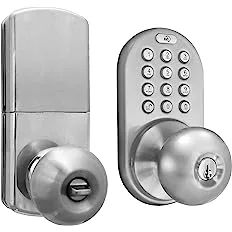 Installing deadbolts on exterior doors can be an effective way to prevent wandering. However, it’s important to ensure that other family members or caregivers can still easily unlock the doors in case of an emergency.
Installing deadbolts on exterior doors can be an effective way to prevent wandering. However, it’s important to ensure that other family members or caregivers can still easily unlock the doors in case of an emergency.

2. Slide Bolts for Alzheimer Patients:
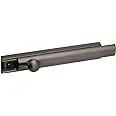 Slide bolts are another type of lock that can be used to secure doors and windows. They are easy to install and operate and can be used in conjunction wit
Slide bolts are another type of lock that can be used to secure doors and windows. They are easy to install and operate and can be used in conjunction with other locks for added security.

3. Door Knob covers for Alzheimer’s Patients:
These are plastic covers that fit over standard door knobs, making it difficult for someone with Alzheimer’s to turn the knob and open the door. They are also childproof, so they can be used in homes with young children as well.
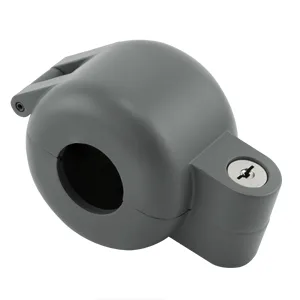
4. Motion Sensors for Alzheimer’s Patients:
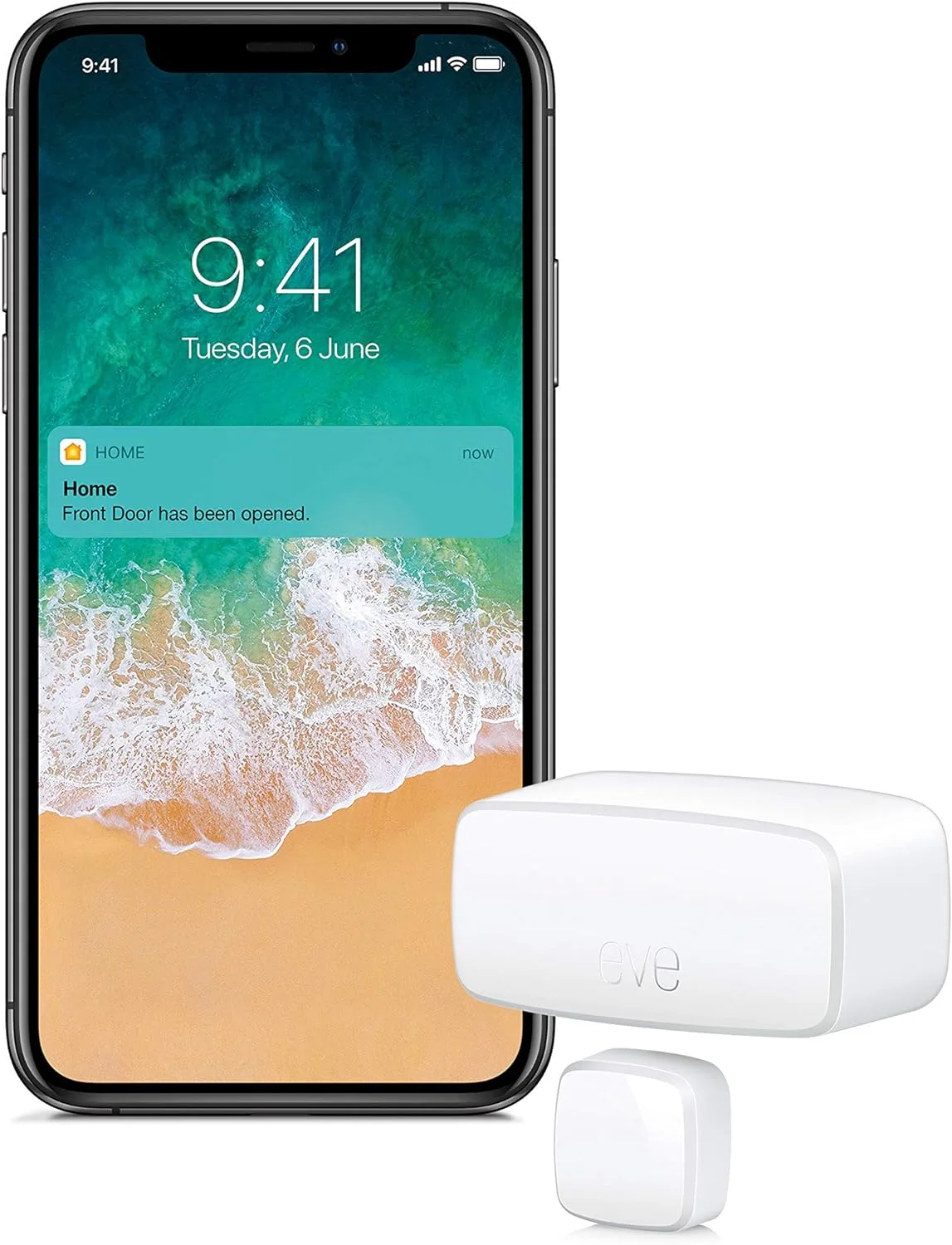
Installing motion sensors on doors and windows can be an effective way to monitor when they are opened. This can be especially useful for caregivers who need to be alerted when a patient is attempting to leave the house. 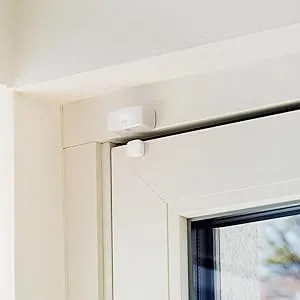
5. GPS trackers:

Osmile ED1000 GPS Anti-Lost Tracker for Dementia, Alzheimer & Autism Patients
- GPS trackers can help locate them if they do wander away from home and can be worn by Alzheimer’s patients.
- Some smart devices have built-in panic buttons that can be pressed in case of an emergency.
- It’s important to note that no lock or device is foolproof and that constant supervision and monitoring are often necessary to keep patients safe.
- It also ensures that patients are comfortable and not feeling trapped or isolated, as this can lead to agitation and other negative behaviors.
7 Door Locks to Keep Alzheimer Patients From Wandering
Door locks are incredibly important when it comes to keeping your patient safe. However, there’s something you may not know about door locks. Namely, they can be extremely powerful tools for security if used properly.
- 1. SCHLAGE FE575 PLY 626 ELA Plymouth Keypad (Overall the Best)
- 2. MiLocks DF-02AQ (Electronic Door Locks for Dementia Patients)
- 3. Kwikset 99130-002 SmartCode 913 (Electronic door locks for dementia patients)
- 4. Safety 1st Outsmart Lever Handle Lock
- 5. Defender Security S 4180 Doorknob Lockout Device
- 6. White Door Guardian Safety Lock, 2-Pack
- 7. Kidde Carbon Monoxide Detector (Best Door Alarms for Dementia Patients)
Front door lock features for dementia patients
It’s important to consider features when choosing front door locks to keep Alzheimer patients from wandering that will ensure their safety and prevent them from wandering.
1. Keyless entry:
We may struggle with using keys and a keyless entry system can be a good option for dementia patients. Many keyless systems use a code or fingerprint to unlock the door, which can be easier for patients to manage.
2. Deadbolt lock:
The lock can be difficult for a patient to unlock on their own and A deadbolt lock provides extra security. It’s important to ensure that family members or caregivers have easy access to the key in case of an emergency.
3. Door knob covers:
As mentioned before, these covers fit over standard door knobs and make it difficult for patients to turn the knob and open the door. They can be especially useful for patients with advanced dementia who may not remember how to use a keyless or deadbolt lock.
4. Door alarms:
Installing an alarm on the front door can be a good way to alert caregivers or family members when the patient is attempting to leave the house. Some alarms use motion sensors, while others can be triggered by the door opening.
5. Remote locking:
We need to lock or unlock the door from a distance so a remote locking system can be useful for caregivers. This can be especially helpful if the patient is prone to wandering and needs to be kept inside for their safety.
It is easy for the caregiver or family members to use that is important to choose a lock that, but also secure enough to keep the patient from leaving the house unsupervised.
How to care for dementia patients?
As populations age, caring for people with dementia has become more common. Elderly caregiving may consist of formal care and informal care. Formal care involves the services of community and medical partners, while informal care involves the support of family, friends, and local communities, but more often from spouses, adult children, and other relatives.
Prevent Elopement/Wandering: Door Guardian in Alzheimer’s Dementia Care
In the last few years, the number of people diagnosed with Alzheimer’s disease has risen dramatically, and as a result, so have the number of patients who wander from their care centers. It’s a scary situation that can lead to a lot of heartache and lost time. But it doesn’t have to be that way.
See the video
<
Related: 7 Best Door Locks For Dementia Patient’s Safety

